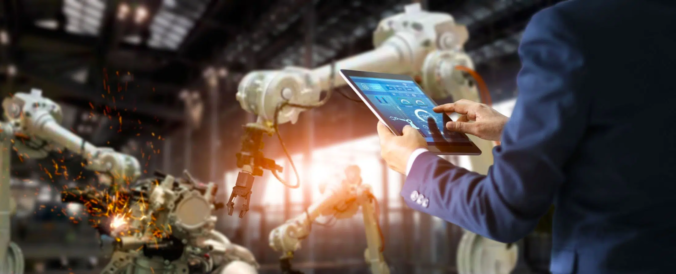With new discoveries and advancements in its technology, AI has been able to expand at a rapid rate, providing a variety of different applications. Particularly, the accuracy, efficiency, and cost-effectiveness of artificial intelligence incentivize businesses and manufacturers to implement the technologies in their production systems. This begs the question: what is the impact AI will leave on job automation and the workforce as a whole?
Efficiency
With the use of AI drastically increasing in the workplace, efficiency is also going to rise. Because artificial intelligence does not need rest and can continuously work around the clock, its production will be much greater relative to that of a human counterpart. In addition, human error is not a factor when it comes to AI. Although there is a slight room for error, AI will ultimately be far more accurate than a human. The higher relative availability and accuracy, combined with the cost-effectiveness makes artificial intelligence an efficient solution for the workforce.
Job Loss

Perhaps the greatest implication of AI use in automation is severe job loss. Automation itself has been decimating several jobs, leaving many unemployed, and this problem will only be exacerbated with a heightened dependence on AI to complete jobs that were previously done by humans. The job loss will be highly disproportionate as AI will target jobs that are mundane and redundant in nature. For example, jobs in security and medical fields are more prone to being replaced by artificial intelligence in the near future. The greatest risk of job loss can be attributed to any field that utilizes manual labor. On the other hand, fields that require more creativity and constant innovation will be at a reduced risk of being replaced by AI. For example, lawyers, writers, scientists, and designers have little to no chance of seeing unemployment in the near future. Regardless of the job loss distribution, AI implementation will decimate many careers, an estimated 375 million jobs (zippia.com).
Job Creation

While it is nearly not enough to mitigate the severe job loss, this AI use can also lead to job creation as well. Specifically, zippia.com states that approximately 97 million jobs will open up in the near future due to AI implementation. These jobs will predominantly be in software development and computer-based fields as they are required to further expand the capabilities of AI. These jobs will also last for a very long time as they are creative and involve critical thinking, and as previously discussed, jobs of this nature tend to not be replaced by artificial intelligence.
Sources

